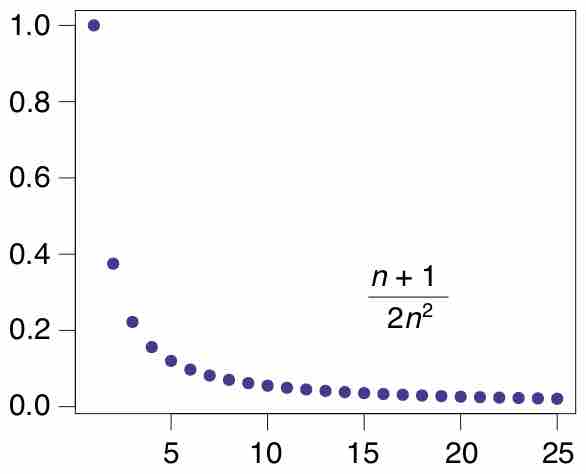Comparison tests may mean either limit comparison tests or direct comparison tests. The limit comparison test is a method of testing for the convergence of an infinite series, while the direct comparison test is a way of deducing the convergence or divergence of an infinite series or an improper integral by comparison with other series or integral whose convergence properties are already known.
Limit Comparison Test
Statement: Suppose that we have two series,
Example: We want to determine if the series

Limit Convergence Test
The ratio between
Direct Comparison Test
The direct comparison test provides a way of deducing the convergence or divergence of an infinite series or an improper integral. In both cases, the test works by comparing the given series or integral to one whose convergence properties are known. In this atom, we will check the series case only.
For sequences
- If the infinite series
$\sum b_n$ converges and$0 \le a_n \le b_n$ for all sufficiently large$n$ (that is, for all$n>N$ for some fixed value$N$ ), then the infinite series$\sum a_n$ also converges. - If the infinite series
$\sum b_n$ diverges and$a_n \ge b_n \ge 0$ for all sufficiently large$n$ , then the infinite series$\sum a_n$ also diverges.
Example
The series